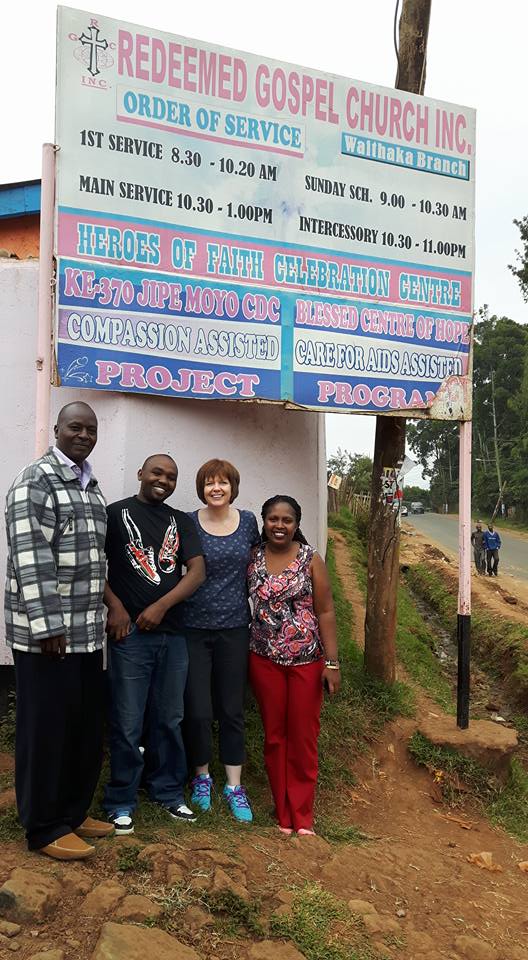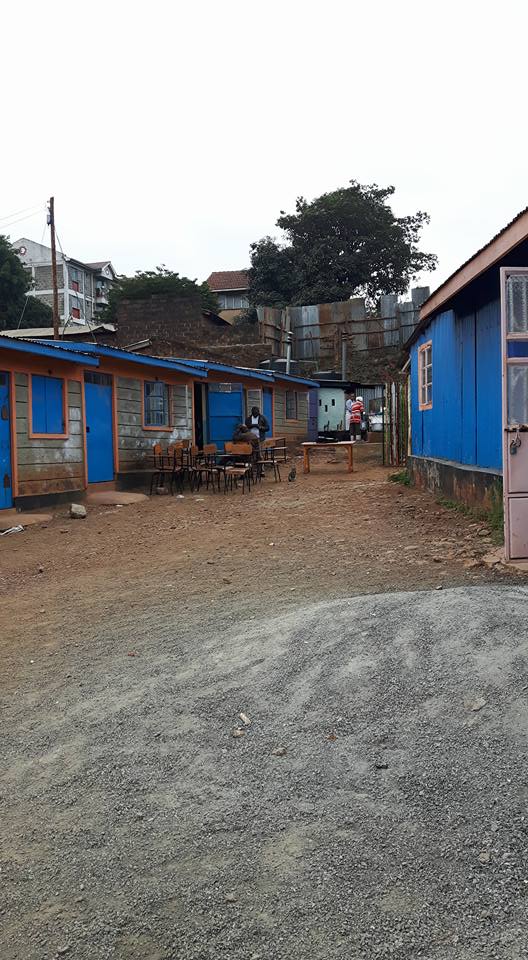
On Earth, As It Is In Heaven….
I’m just back from my 3rd trip to Africa, to meet 13 inspirational people in my role as Development Facilitator for Tearfund’s Inspired Individuals Programme. As much of my last 20 years has been working in community development and peace and reconciliation in Northern Ireland, I am hugely interested in transferable learning.
It was a mammoth trip covering Rwanda, the Democratic Republic of Congo, Uganda and Kenya, individual meetings with all my Inspired Individuals in 16 days. It was also wonderful to meet with many of the amazing Tearfund staff who work in the various countries.
My first stop was Rwanda. All of the Inspired Individuals in Rwanda and Burundi are involved in the Peace and Reconciliation Cohort and I was taken by Christophe Mbonyingabo who heads up an organisation in Rwanda called Carsa http://www.carsaministry.org/ to one of the villages where he works with survivors and their perpetrators in a project called “Cow for Peace. For someone from a Northern Ireland context most of whose life was lived during “the troubles” it was humbling to see and hear those who had been supported on a difficult journey of reconciliation and forgiveness. Both survivors and perpetrators told their stories. They had grown up together, lived their lives together until the genocide. So when the perpetrators were released from prison after 11 or more years, they had nowhere to go, but return to the villages where they had built their lives. Carsa has not only helped them to work through their pain, anger or guilt and enabled a journey to reconciliation, but also recognized that those in poverty need economic support. Each survivor and perpetrator in the group is given a cow which their families jointly look after and benefit from. On the birth of the first calf, the survivor presents it to their perpetrator as a tangible symbol of their reconciliation.
It seems to me that Northern Ireland may have moved on economically and outwardly look more peaceful, but forgiveness is rarely an integral part of reconciliation. The churches seem to even struggle with the language of peace and reconciliation. We have much to learn from the Rwandan process of recovery from the genocide and the churches involvement in this. Community development and peace and reconciliation are intertwined here as in Rwanda and both need to be part of any process of social justice from a faith perspective.
There is so much that I could talk about in terms of learning from this trip, including the chance to provide training in the DRC from the peace and reconciliation work I had been involved in in N. Ireland. However, I want to highlight my time in the Kibera Slum in Nairobi followed by my visit to Nairobi Chapel the next day.

Mobilised Church in Kibera Slum
Inspired Individual Moses Wanjiru grew up in the slum and managed through developing a livelihood, not only to change his life and that of his family but to develop the Sustainable Livelihoods approach http://tilz.tearfund.org/en/themes/hiv/sustainable_livelihoods/ with Samaritains Purse in partnership with Tearfund. He is now passionate about mobilising churches through this model and I visited one of the small under-resourced churches that is successfully using the model. I was also introduced to a number of the women who are being enabled to develop livelihoods and lift themselves out of the poverty cycle. It is clear that as relationships are developed and they are encouraged to look around them at “what is in your hand”, so they begin to have hope and future as they tap into their God given potential. They begin to see themselves as valuable and hope is a powerful motivator.
Church in Kibera Slum
The next day I visited Nairobi Chapel, a large well-resourced church which would not have looked out of place in the centre of London, bar the fact that the facilities were made up of a number of upmarket tents. The congregation numbered about 8000 with three services over the weekend. The worship was high tech and professional, the congregation from a more middle class background. It was a sharp contrast from the day before. During the service I learned about a week of social outreach to a predominantly Muslim community some distance away to provide medical care and support for access to medical insurance. There was a plea for more volunteers.

As an Umoja/ Church mobilisation facilitator myself of over 15 years, utilising the resources adapted by the IMPACT UK team it was interested to note the similiarities between what happens globally and locally. I attend a small church In the middle of a marginalised loyalist estate in N. Ireland. There are a number of more affluent churches around with good resources and skills, but little joining of the dots and understanding of how these churches might work in partnership to lift people out of poverty and build the Kingdom of God. It is not that people don’t want to help, more that they don’t understand the needs and issues in those areas, or how indeed they can help. They don’t have relationship with people different to them.
As I return to Northern Ireland, my trip to Africa will be an important influence on my development of the charity that I am involved in developing here, Thrive Ireland – which seeks to support Church mobilisation and support for peace and reconciliation locally. I will pray every day for God’s Kingdom to come on earth as it is in heaven wherever that is in the world.